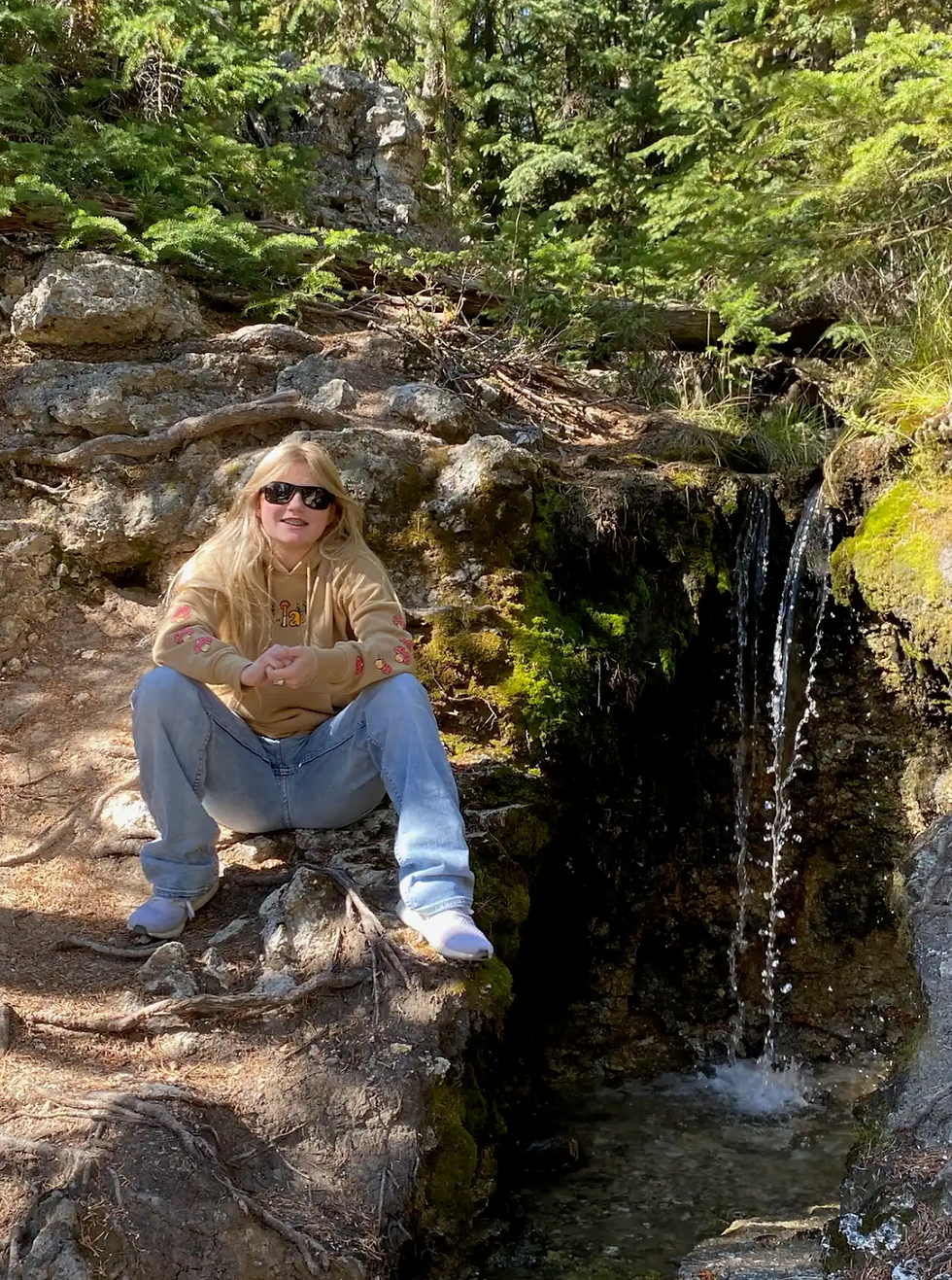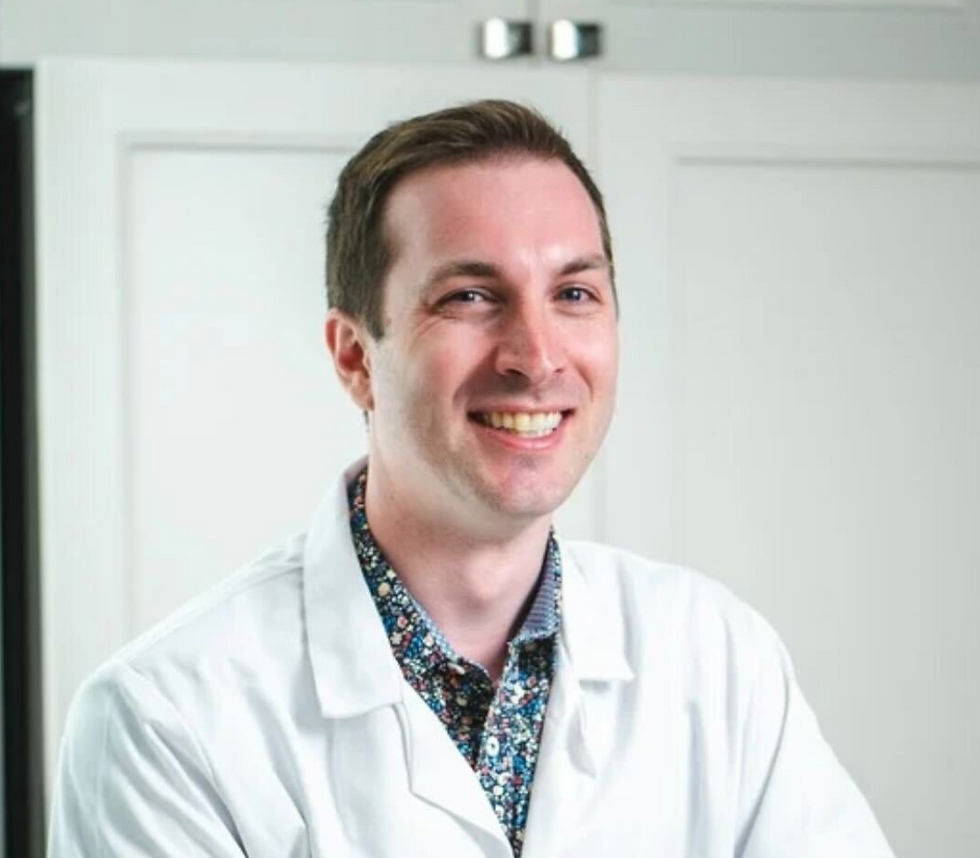Interview with Patti Foster & Dr. Deana Adams
- Jasper Delichte
- Apr 28, 2021
- 6 min read

Patti Foster & Dr. Deana Adams
Patti: Thank you so much for allowing me to be a part of Voices of Brain Injury to truly extend hope to others who may be going through the journey of brain injury. My name is Patti Foster. I was in media all my life, in TV and radio. I was killed in a crash, dead on the highway, whitesheet pulled over me. They said “she’s dead.” But miracles do happen. And with me today is Dr. Deana Adams, Founder and President of Hope After Brain Injury.
Deana: I originally was introduced to Patti years and years ago. I was a first-responder in the Oklahoma City bombing. Patti was a DJ on the radio, so she interviewed me and that’s how we originally met. And then we were reintroduced after her injury and it was that reintroduction that I learned about TBI and my life would be changed forever.
Patti Foster (right) & Dr. Deana Adams (left)
What is Hope After Brain Injury?
Patti: Now we have formed together HopeAfterBrainInjury.org and its truly to expand and to improve brain injury awareness around the world, with survivors, caregivers, carepartners, healthcare staff, therapists, and whomever, to truly, like you said, bridge the gap; there's a massive chasm out there.
Deana: We are the only faith-based nonprofit organization in the States, so it’s a big wonderful opportunity. We have three goals: to equip others on how to work with brain injuries, to educate them, and then encourage fellow survivors and caregivers. We started in 2011, and we were given the nonprofit status in January of 2013. We create hope lessons, do interviews with people all over the world, and we have our Youtube channel. We also do 1 Minute of Hope, which is a one minute devotional that I write, Patti voices. We’ve done almost fifty of those. And we travel all over the world and speak at different brain injury conferences and counselling conferences and things like that. We also have lots of brain injury resources on both of our websites to help people navigate life after brain injury.
Can you please share with me a bit about the nature of your brain injury. Just as much as you feel comfortable sharing.
Patti: My brain injury was caused by a motor vehicle crash on June 18th, 2002. It was 6:45 here in the evening down here in Texas. We were on our way to our last Bible study meeting. There were four of us in a Tahoe, on our way to the Bible study meeting at a person's house. We were stopped at a really busy intersection there, all lanes of traffic were full. I was sitting behind the driver. We all had our seatbelts on. And I had bought flowers for all the ladies, so I took off my seatbelt to turn and check on the flowers in the storage area behind the second row of seats. As I was turning, a semi, carrying a trailer of cars, travelling 70 miles/hour plowed into the back of the Tahoe. When it hit, it ejected me out of the back opposite side of the Tahoe, through the window. When the impact happened, it shot my body like a missile out of that window, and the right side of my face and head hit first and then as I went through everything started ripping off my body. A pool of my blood, well over 60% of my blood on the highway. Over 25% of my bodily tissue, gone. And then broken fractures all over. They said when I was brought in, everything was ripped off, everything was in gauze, my whole body was. They said my head was swollen fully to the size of a basketball and only my nose could be noticed and recognized. The rest was covered.
One of my radio friends was an eye witness and he said, “Patti when you came out, and you landed on the highway, I knew that you were dead. I didn’t even know it was you, I didn’t recognize it was you and I had worked with you for years in radio. But all I could see was a heap of bones and flesh on the highway, and as I looked at that mass, I knew that body was dead or about to be dead within seconds because the body cannot endure that kind of trauma and live. Miracles do happen. The EMT found no pulse and pulled the whitesheet over me. Later, someone who was walking around the scene heard a gurgling noise beneath that white sheet and thank the Lord for gurgling, because that's what got someone's attention. They got a helicopter and as they were flying me to the ER my body shut down into a coma for six weeks. I was living dead. Nothing. And I’m getting to do today what they said I was never ever gonna be able to do. I tasted death and it gave me a whole different perspective of why I do what I do.
What did your recovery process look like?
Patti: It was a long journey. It was a very slow process. You kind of gradually start to become conscious then you’re out again. They had to teach me everything. How to swallow, to chew, I didn’t know my ABCs, how to write, didn’t know my name, nothing made sense to me. I was like a little toddler, having to learn how to speak, write, read, walk, every single basic function of living, I had to relearn. Thank goodness for perseverance. Nothing was easy, but I fought. You know how people say “Do you fight or flight?” Well I was a fighter. I had to fight to live. Not to give up. And my life continued.
What role has faith played in your recovery?
Patti: A huge role. When I was in the coma, God was more real to me than our talking right now. I’ve learned that my personal relationship with Jesus is a huge power that gives me the strength to keep trying when everything wants to shut down, that he helps me when I can’t do anything. He makes the way when there seems to be no way. It allowed me to persevere through adversity.
Deana: In one of her interviews, the one thing she says at the end is that the only thing that she didn’t lose, that didn’t go away was her relationship with God.
Patti: He was my one constant.
What were the symptoms like after your brain injury?
Patti: Even today, 19 years later, I live on with residuals. Short term memory can sometimes just disappear. My balance, equilibrium, are greatly affected. When I get tired, at the end of the day, my brain is exhausted. Its fuel tank is empty. When I'm fatigued or sick, there's a lot of double vision in the right eye, or blurred. I try to overcome it by being positive and not replaying the negative stuff. Sometimes with brain injuries it's difficult to stay positive, because we aren’t independent like we were before. We don’t have the whole position of leadership or professionalism that we had before. So there's a big swallowing of pride that comes along with traumatic brain injuries. However it makes me incredibly more grateful and thankful for what I have and not to take a moment for granted, because we never know how much time we have left, nor do we know the quality of that time. So my motto says: M.A.D Now, Make A Difference Now!
How has living during Covid affected your injury recovery process?
Deana: In our recovery group, we talked about persevering and that there's nothing we can do about the pandemic. It was placed on us, you know the restrictions and what not. In some ways it helps the normal people understand what brain injury is like, when all of a sudden your social contacts are all cut off. All of a sudden your work, which you thought you'd wake up every day to go to, it stops. It's a little taste of what having a brain injury looks like.
Patti: I am so grateful for Hope After Brain Injury, even though we couldn’t meet in person, we’ve done ZOOM meetings. I am so thankful for that.
What's the first thing you would like to do after the pandemic?
Patti: Well it seems to be so foggy as to when the end of the pandemic will be, but we are hopeful to go to Ireland in 2022.
Deana: We hope to be accepted to the International Brain Injury Association. We were accepted to go to Dublin in 2021, but with Covid, we couldn’t meet, so we are hopeful we can go.
Patti: And in 2022, the 20th year of the crash, my friend from the Philippines invited me to go there for a month and travel and speak and really just give hope and spread brain injury awareness.
Interviewed by Jasper Delichte



